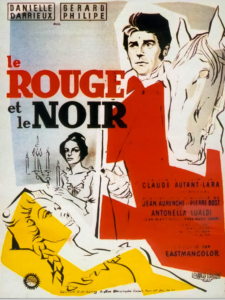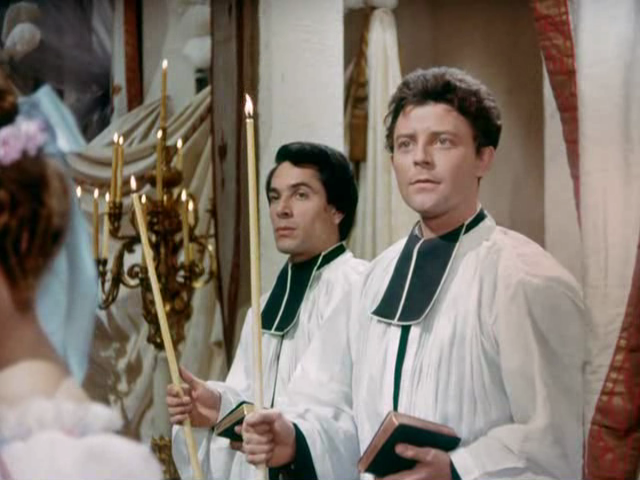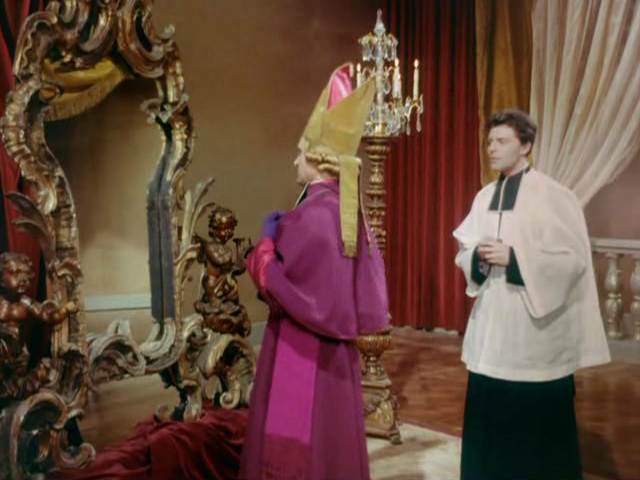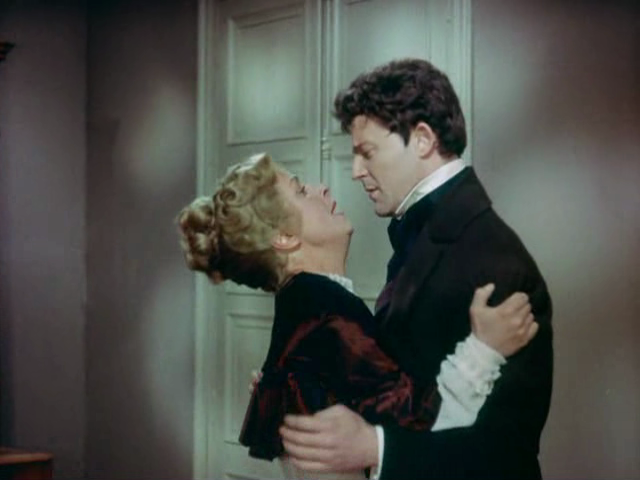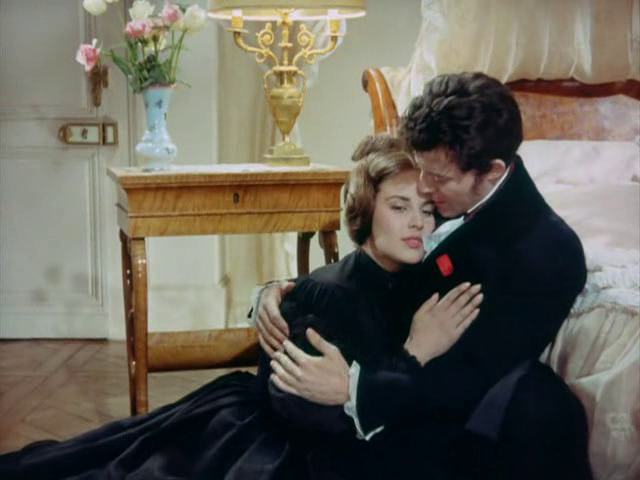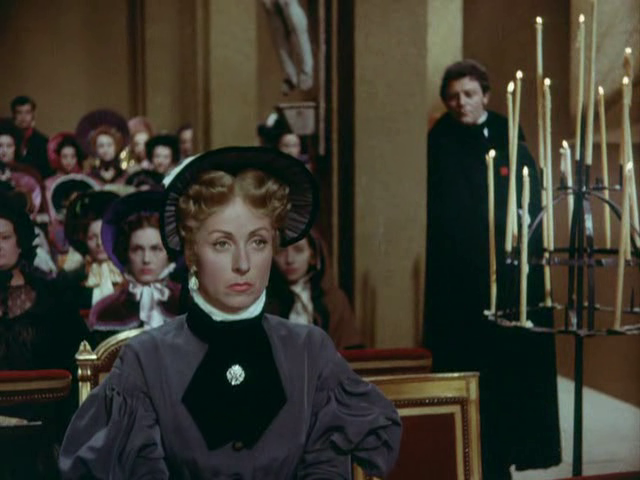Red and the Black, The (1954)
“Never has sin been committed with less joy.”
|
Synopsis: |
|
Genres, Themes, Actors, and Directors:
Review: Sorel is an intriguing protagonist — someone we don’t especially like, but are curious to learn more about as we see the various moves he makes, especially knowing he’ll end up in court defending himself (the film is structured as a lengthy flashback occurring during his trial for shooting a woman). We wonder why he wants to be a priest, for instance — but a key scene when he observes a bishop genuflecting in front of the mirror helps us understand that he’s eager to climb the heights of this profession and be adored in precisely this way: Meanwhile, his predatory seduction of Darrieux’s Mme. de Rénal feels loathesome, yet he does seem to eventually love her in his own way: As the story progresses, we continue to learn more about Sorel’s ambitions and how calculated he is about every single decision in his life. While he’s temporarily foiled time and again, he eventually “succeeds” in landing a higher spot in society — only to have it all unravel due to jealousy and passion. C’est la vie. Note: This film has existed in a variety of lengths over the years, ranging from 113 minutes to 194 minutes; the latter is the version I saw, and it never seemed to drag (though I did watch it over several different sittings). Notable Performances, Qualities, and Moments: Must See? Links: |
